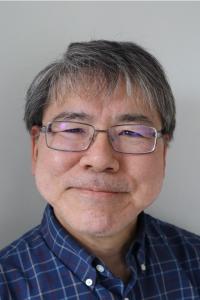Hiroshi Nakagawa , MD
- Associate Professor of Medicine

Overview
Academic Appointments
- Associate Professor of Medicine
Gender
- Male
Research
I have a broad background in gastrointestinal epithelial biology, tumor biology, and molecular and cellular biology with specific training and expertise in key research areas. As a postdoctoral fellow at the Massachusetts General Hospital (1993-1996), I investigated cell-cycle regulation via cyclin D1 and the transcriptional regulation of genes in the esophageal squamous epithelium; and developed the first transgenic mouse model of esophageal squamous cell carcinoma (ESCC). At Penn GI Division (1998-2019), I expanded my research to study EGFR, Notch and other molecules essential in ESCC intra-tumoral cancer cell heterogeneity (e.g. CD44) and environmental risk factors (e.g. alcohol) for esophageal carcinogenesis.
As Associate Director of the Penn Cell Culture/iPS Core, I provided expertise in all aspects of isolation of primary mouse and human esophageal cells, establishing cell lines, genetic modifications of esophageal cells via viral vectors (e.g. Tetracycline-inducible retroviral/lentiviral vectors, RNA interference, and the CRISPR/Cas9 system) and physiologically relevant three-dimensional (3D) culture systems (3D organotypic culture and 3D organoids, the latter translatable in personalized medicine). I pioneered the recapitulation of a variety of esophageal disease conditions in patient-derived 3D organoids grown ex vivo and have authored articles and given talks in various national and international meetings, on esophageal 3D culture systems. I have a demonstrated record of successful and productive research projects in esophageal epithelial biology, tumor biology and common clinical diseases (e.g. eosinophilic esophagitis, Barrett’s esophagus, and esophageal cancers).
Joining the Herbert Irving Comprehensive Cancer Center and the Division of Digestive and Liver Diseases at Columbia University (July, 2019-), I continue research on fundamental mechanisms in epithelial renewal, differentiation, and cell fate determination with the above esophageal diseases as well as cancers of the adjacent oropharyngeal mucosa (head-and neck) as unique model systems.
Selected Publications
Kasagi Y, Chandramouleeswaran PM, Whelan KA, Tanaka K, Giroux V, Sharma M, Wang J, Benitez AJ, DeMarshall M, Tobias JW, Hamilton KE, Falk GW, Spergel JM, Klein-Szanto AJ, Rustgi AK, Muir AB, Nakagawa H. The Esophageal Organoid System Reveals Functional Interplay Between Notch and Cytokines in Reactive Epithelial Changes. Cell Mol Gastroenterol Hepatol. 2018; 5(3):333-352 PMID: 29552622
Whelan KA, Chandramouleeswaran PM, Tanaka K, Natsuizaka M, Guha M, Srinivasan S, Darling DS, Kita Y, Natsugoe S, Winkler JD, Klein-Szanto AJ, Amaravadi RK, Avadhani NG, Rustgi AK, Nakagawa H. Autophagy supports generation of cells with high CD44 expression via modulation of oxidative stress and Parkin-mediated mitochondrial clearance. Oncogene. 2017 Aug 24;36(34):4843-4858. PMID: 28414310
Natsuizaka M, Whelan KA, Kagawa S, Tanaka K, Giroux V, Chandramouleeswaran PM, Long A, Sahu V, Darling DS, Que J, Yang Y, Katz JP, Wileyto EP, Basu D, Kita Y, Natsugoe S, Naganuma S, Klein-Szanto AJ, Diehl JA, Bass AJ, Wong KK, Rustgi AK, Nakagawa H. Interplay between Notch1 and Notch3 promotes EMT and tumor initiation in squamous cell carcinoma. Nat Commun. 2017; 8(1):1758. PMID: 29170450
For a complete list of publications, please visit PubMed.gov